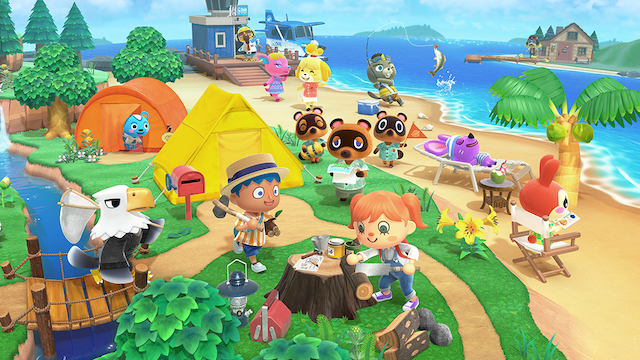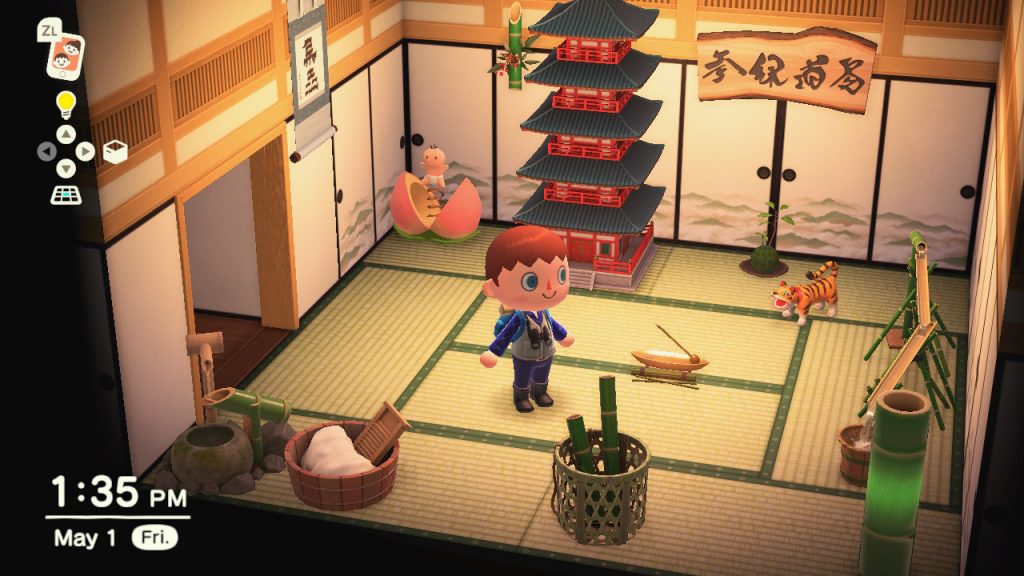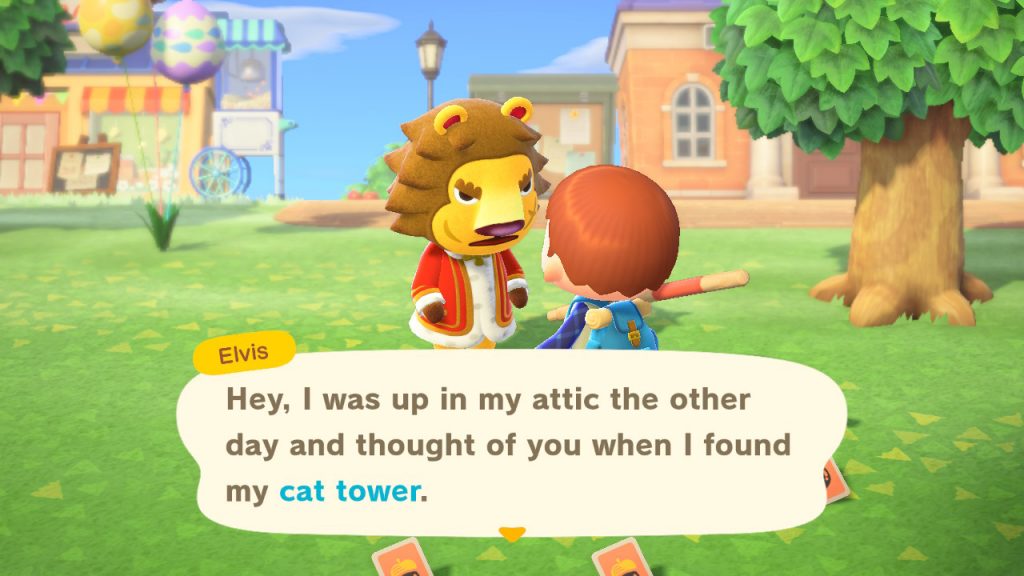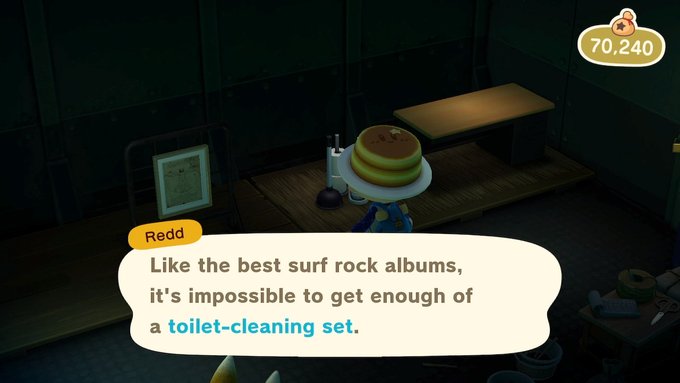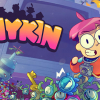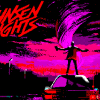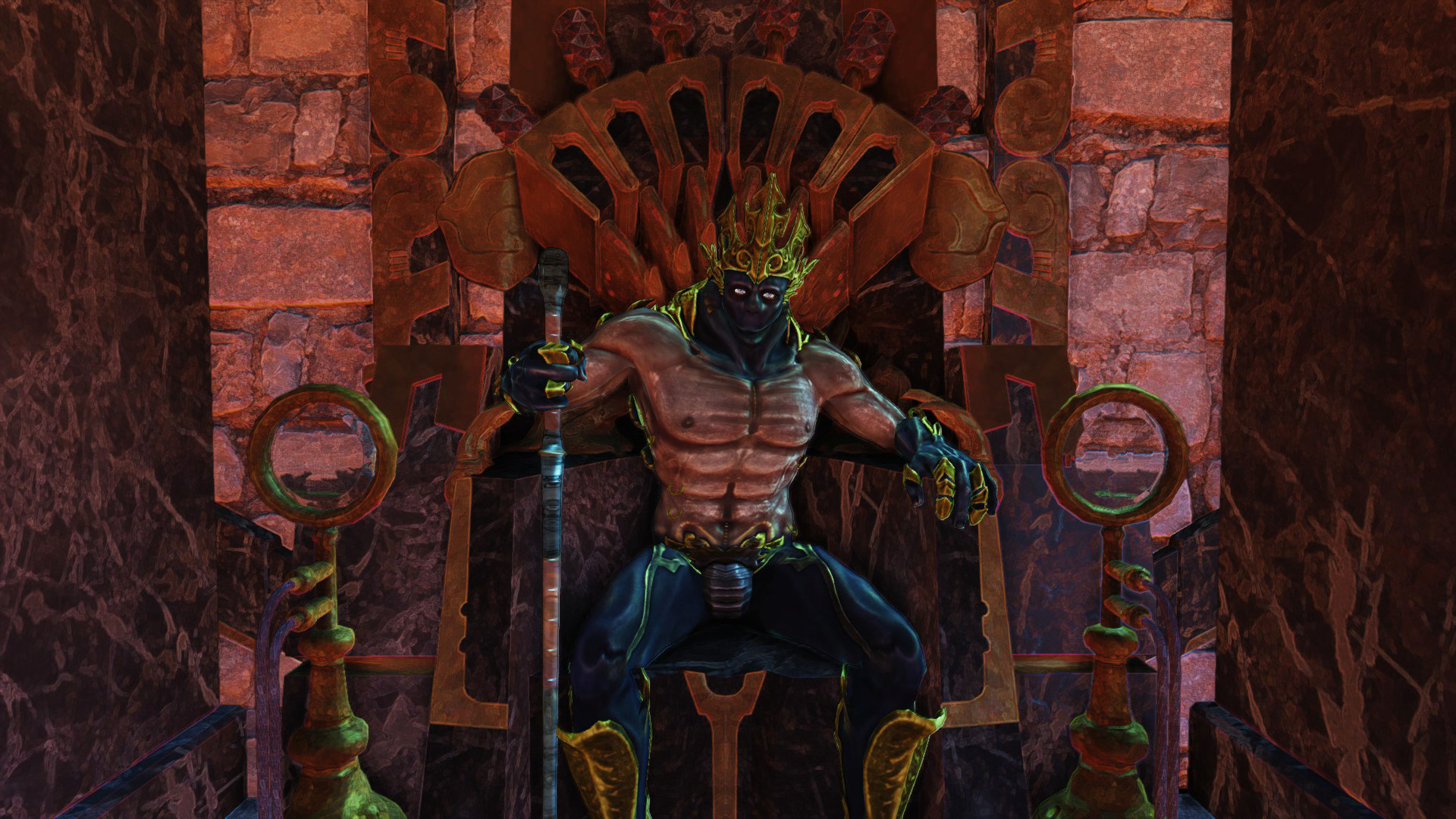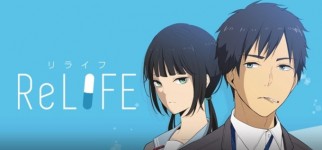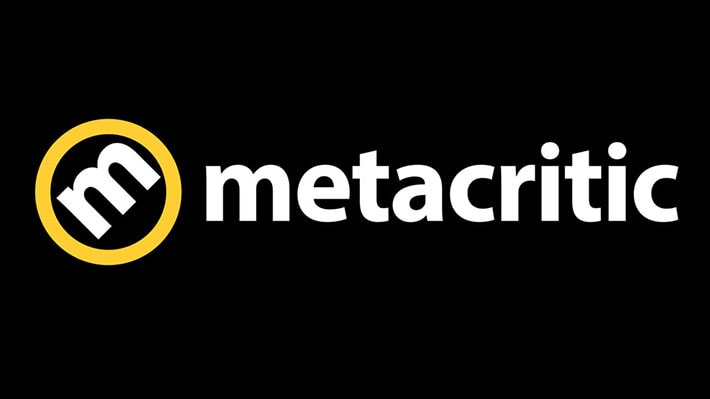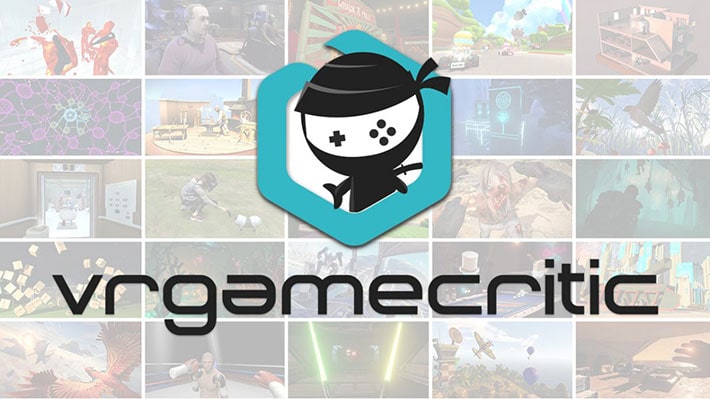Broaden your horizons.
I still remember the moment I knew — it wasn’t when I realized I could embroider an 8-bit Mario on a custom-made shirt, that one of my three new cat neighbors bore a supple orange-shaped head decorated with pores, or how I routinely baited my virtual animal friends into explosive, animated tantrums with untoward bops from my bug net; no, it was walking in on my Mom holding the GameCube controller, our Siamese cat lazily nestled in her lap as she steadily furnished her in-game home, silently arranging bits and bobs in her one-room hovel before penning letters to the loathed hen down the road. Did I mention this all occurred in my room: an eleven-year-old’s sanctuary, where my GameCube roused hot-blooded cheers and defeated moans in Super Smash Bros. Melee and Super Monkey Ball 2.
It was then I knew Animal Crossing was something special. For the first time, I wasn’t sharing my gaming passion with my family – we bounced off each other and frequently provided updates on our progress in our little 24/7-operated village. Messages were plastered on the town bulletin board, prank letters were frequently shown off by bemused animal villagers (ever the unwilling participant of my brother’s torment, Admiral the bird didn’t quite know how to interpret “Anthony wants to make out with you”), and homely gifts were received in the mail. As the pocket that was my personal sphere’s marvel of “a game that’s playing even when you’re not” echoed beyond the sluggish GameCube’s dedicated audience, might Nintendo have foreseen potential as they laid the groundwork for Wii/DS’s expanded market…?
Nearly twenty years later – from the handheld highs of Wild World and New Leaf to the momentum-killing lows of Wii’s City Folk — and look at how our little communication game evolved into Animal Crossing: New Horizons: an international sensation captivating a pandemic-ravaged world. Nintendo’s latest iteration of animal escapism has proven itself a much-needed Zen in this time of isolation: state representatives are asking for Dodo codes, celebrities participate in the game’s high-risk, high-reward turnip stalk market to score huge Bells (the in-game currency), and weekly talk shows are held in this dude’s basement. In this age of viral social media and social isolation, the games island getaway package has become a way of life — a makeshift method in everything from wedding festivities to funeral farewells.
For the series devotee familiar with Wi-fi connections and furniture trading, we’re tickled at Animal Crossing‘s mainstream penetration in such dire times, but what does it do better? For my money, I truly wonder if can top New Leaf – as opposed to New Horizons’ regularly-scheduled DLC rollouts, the 3DS game featured a treasure trove of content from the get-go that I kept unearthing years after release, and this is to say nothing of the Welcome amiibo update! Yet I suspect New Horizons may ultimately triumph in the court of public opinion if only in finally achieving the series ideal: an unfettered microcosm truly free of any responsibilities.
I say this knowing full well this is at odds with the opening prologue – an unusually streamlined sequence hampering our exploration to the tune of a maddeningly repetitive guitar – but even in those early stages do we gradually recognize a key paradox in Animal Crossing’s been done away with; namely, a responsibility to un-responsibility. For all the stress-free leisure the series previously touted, I think back to the ugly weeds and dead flowers populating neglected towns, the turnover rate of beloved villagers leaving us apprehensive to relax our virtual routine, and (heaven forbid!) our momentary memory lapses in recording our progress, inducing our town disciplinary officer in Mr. Resetti to berate us at our wasted time.
I’d elaborate further on how all this time commitment forges something of a broken heart in knowing I can never return to my former towns, but I have a review to write; point is, with New Horizons committing to an island getaway theme, it simply wouldn’t do for any stress to impede upon our eternal vacation, so now punishing series traditions are reinvented for our convenience. Villagers give more advanced warning on moving means we can break for a day or two instead of constantly checking with 24/7 surveillance, whereas pervasive weeds are now recycled into DIY furniture or Nook Miles rewards. Flowers only require water for crossbreeding, and the game periodically auto-saves. Hot on the heels of the series’ gestational period in Happy Home Designer and Welcome amiibo, not only does the game iterate upon their ideas in outdoor furniture (would you like an exotic pyramid next to your comfy beach chair?), but its confident innovation in terra-forming our island homes demands hours of our time, be it gradual construction of our dream suburbia clusters or loving recreations of Pokémon Gold and Silver‘s Johto and Link’s Awakening‘s Koholint Island.
All operating to the beat of Animal Crossing‘s new achievement system in Nook Miles — an alternate form of in-game currency rewarded for everything from catching new fish to simply shooting the breeze with local residents. Merely observe how never-ending roulette of daily bonuses transform the most banal of Animal Crossing activities into an organic economy; for instance, weren’t weeds just Animal Crossing’s way of punishing your neglect with monotonous gardening chores? The hardcore series fan calls for their removal — an affronting intrusion upon their daily routine — but New Horizons is more benevolent, and decides if they’re just going to sit there and look ugly, why not make use of the dumb things? By hoarding weeds infesting our islands and local Nook Miles island tours, we can sell them off to Nook’s for a quick n’ easy blend of Bells/Miles, but as the world of DIY crafting opens up, further opportunities arise: should we instead recycle them into furniture for a bigger profit? The resourceful player already hoarding weeds quickly exploits both options, whereas the fledgling villager may find their new hay bed’s a perfect segue into their cozy new island life.
Not that the DIY system doesn’t come with its own issues – I’m not fond of dashing back to my workstation every time my tools break, and I wish you could stack DIY inventions as opposed to individual crafting – but my main point is: isn’t it wonderful how New Horizons does its damnedest to ensure everything and anything is relevant to your little island community? We’re just as fascinated by our newfound fascination with seashells — a largey-useless source of revenue and utilization in previous games that now feeds into expensive DIY projects — as much as we continually observe our villagers’ foibles in watching their discovery of water fountains or how their cozy contentment in smelling flowers leaves them prime for surprise bug net whacks. Just like before, we slowly pick out favorites within our inner cirlce; myself, there’s Rocket’s flashy Super Sentai outfit wearing her big heart on her sleeve, Bluebear’s adorable physique counterbalanced by frivolous outbursts and graceful yoga exercises, or Alphonse’s general dumbassery as the village idiot. (Also, before you ask: yes, I’m Pro-Rodney; if anything, I quite like how the urinal shrine I established in his front-yard paints the chubby hamster as a rebel.)
Regardless of whoever dwells in your island community, they all operate to the tune of a fantastic localized script — say what you will about the infamous Sea Bass line you’ve heard a million times, but everything from ramblings about train rom-coms into the too-cute-for-words joviality of Daisy Mae and Isabelle some of Nintendo Treehouse’s best work yet. Look no further than the above salespitch above by shady ol’ Jolly Redd to witness the magic of Animal Crossing dialogue; no, the preset script probably wasn’t designed for this specific item, but that it happened in this exact context — a shady conman selling off a lavatory cleaning set as if it were the punk-rock equivalent of solid gold — elicited a most unexpected belly laugh on my end. (Enough, even, to earn a purchase; no regrets) So flexible is Animal Crossing’s linguistic charm that we can even imbue our own word-smithing in our neighbors’ respective greetings and catchphrases – woe be the poor sweet squirrel stuck with swears!
Hence where the true appeal of Animal Crossing lies– through everything from monuments to juvenile toilet humor to stealthily redesigning neighbor homes through gifts, New Horizons is the ultimate appeal to personal creativity. As I juggle between typical money-making routines and meticulous landscaping projects, I can’t help but wonder if Bluebear would be better off with a heavy metal theme entailing her inner renegade? Even now, I’m still figuring out what would be a best reflection of Anthony Pelone in an island home; yes, a study overlooking the ocean and a meditation monument to Japanese Zen are vital, but how do I best convey my workout/gaming lounge? Do they even fit together?
Much like previous games, Animal Crossing: New Horizons is a *mirror expressing the naked desires of the player’s personality – even as the game appeals to our inner coziness and wholesome warmth, it equally balances a mischievous streak that maybe we’d rather not unveil in day-to-day communication: just as how I channeled my powerless to combat my childhood bullies by trapping my GameCube village idiot (Ozzie the koala) in a quarantined sign prison, it obviously wouldn’t do for grown-up fans to inflame petty grudges amid nosy neighbors and irritating co-workers, so Animal Crossing‘s virtual AI-populated playground might be the perfect outlet to, ahem, “unleash” our frustrations. (Nothing like that over here, mind, but Allie and Pango are pretty boring villagers — how many net whacks do you need to take the hint?)
(*Contrary to popular belief, my torture dungeon suburbs in Happy Home Designer are the exemption to this rule; no, really!)
My snapshots are but the tip of the iceberg!
For all the friendlier examples I could provide in late-night gatherings or clever Photopia photo-ops, what better form of tropical getaway- escapism could you have in this consequence-free environment? As with every previous entry, Animal Crossing: New Horizons celebrates the mundane as much as it rewards us for our town-building ambitions, and that we can sit back and relax without dreading any unpredictable relapses means we can finally commit to the series’ objective in recreational leisure. (Really, much as us Animal Crossing folks love to craft conspiracy theories around ol’ Tom Nook, producer Hisashi Nogami’s right – as opposed to the very real loan sharks trampling our home-owning dreams, the tanuki’s saintly patience is an underappreciated virtue.)
Animal Crossing‘s original vision had humble goals in facilitating local communication with friends and family; now, New Horizons confidently stars on the global stage by readily shattering virus-devised boundaries for the sake of vital human interaction. As I rekindle old friendships and assist bored high schoolers through housekeeping tips, through the power of Dodo Codes I simply waltz into strangers’ towns, drop off a coveted piece of furniture or sell some conveniently priced turnips, leave a tip as I express admiration for their beautifully-crafted villages, and walk away as if I were never there. As one wearing the mask of a hardened adult but internally struggling with autism’s everyday roadblock in social isolation and hyper-focused fears, there is no better tool — nay, companion — in stepping outside my boundaries and venturing into the societal unknown. With periodic DLC likely set to enrich our islands for years to come, I’m again reminded that maybe making new friends isn’t so scary after all.
(Now, where’s my Nintendo furniture? My retro room ain’t gonna populate itself.)
Final Verdict: 4.5/5
Available on: Switch; Publisher: Nintendo; Developer: Nintendo; Players: 1-8; Released: March 20rd, 2020; ESRB: E; MSRP: $59.99
Full disclosure: This review is based on a retail copy of Animal Crossing: New Horizons.

